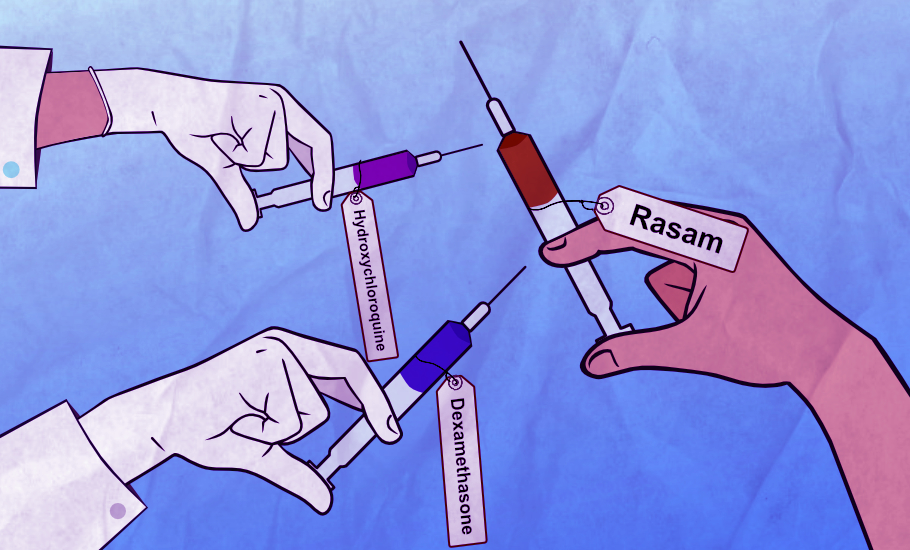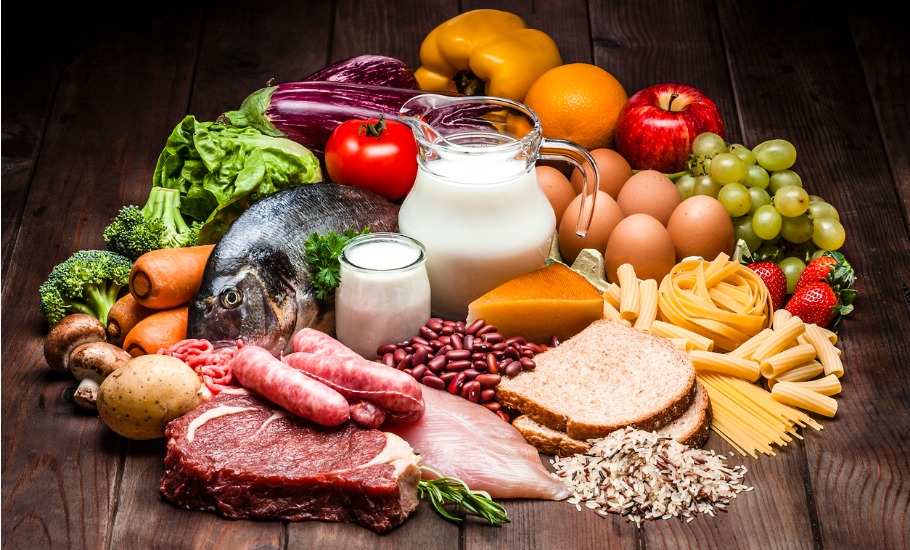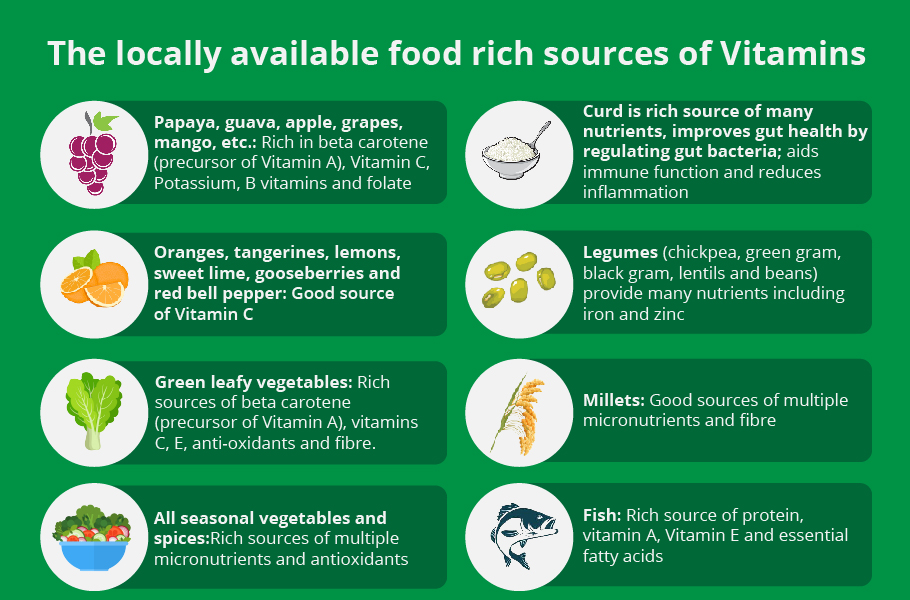
- Home
- News
- Analysis
- States
- Perspective
- Videos
- Education
- Entertainment
- Elections
- World Cup 2023
- Features
- Health
- Business
- Series
- Economy Series
- Earth Day
- Kashmir’s Frozen Turbulence
- India@75
- The legend of Ramjanmabhoomi
- Liberalisation@30
- How to tame a dragon
- Celebrating biodiversity
- Farm Matters
- 50 days of solitude
- Bringing Migrants Home
- Budget 2020
- Jharkhand Votes
- The Federal Investigates
- The Federal Impact
- Vanishing Sand
- Gandhi @ 150
- Andhra Today
- Field report
- Operation Gulmarg
- Pandemic @1 Mn in India
- The Federal Year-End
- The Zero Year
- Premium
- Science
- Brand studio
- Home
- NewsNews
- Analysis
- StatesStates
- PerspectivePerspective
- VideosVideos
- Entertainment
- ElectionsElections
- Sports
- Loading...
Sports - Features
- BusinessBusiness
- Premium
- Loading...
Premium

Peddling food myths in the time of pandemic
Given the fear that comes with this pandemic, people tend to believe in ‘WhatsApp forwards’ that perpetuate food myths surrounding coronavirus.

In his two-decade long career as a scientist at the National Institute of Nutrition (NIN), Hyderabad, Abhinay Deshpande has never been bombarded with so many questions from acquaintances and friends, and even strangers. Ever since the outbreak of coronavirus and the lockdown that followed, he has been encountering a flood of queries from friends, long-lost relatives and strangers at...
In his two-decade long career as a scientist at the National Institute of Nutrition (NIN), Hyderabad, Abhinay Deshpande has never been bombarded with so many questions from acquaintances and friends, and even strangers.
Ever since the outbreak of coronavirus and the lockdown that followed, he has been encountering a flood of queries from friends, long-lost relatives and strangers at the residents’ association meetings at his apartment complex — all pertaining to what food items to eat and what to avoid to keep the deadly virus at bay.
“I get introduced to random people even inside an elevator and they start bombarding me with questions as bizarre as whether having rasam will cure coronavirus infection,” Deshpande says, recalling his ordeal.
The Sunday meetings of the RWA routinely turn into free-for-all sessions on nutrition where members peddle their own sets of myths, giving lecture to those willing to listen on Dos and Don’ts on “food items that one needs to take” in the time of pandemic.
Deshpande’s office — NIN, a century-old premier research institute now under the control of Indian Council of Medical Research (ICMR) — is also facing a flurry of queries from people anxious to know whether there is any wonder food remedy for the coronavirus.
“Let’s get this very clear. There are no wonder food items that can prevent or cure COVID-19,” the NIN scientist says. He and his fellow-scientists have been repeating this advice to all those who tend to believe in ‘WhatsApp forwards’ that perpetuate food myths surrounding coronavirus.
Immunity, the buzzword
“Immunity” is probably among the most misused expressions since the outbreak of COVID-19 pandemic. Social media platforms have been abuzz with a plethora of reports containing “experts’ advice” on foods that help boost immunity to fight the virus.
With doctors, who have personally treated coronavirus patients, and public health officials posting videos stressing on the need to build strong immunity to fight SARS-CoV-2 and also to prevent COVID-19, there has been a surfeit of information flow, making it difficult to separate myth from reality.
There is nothing quite like a pandemic to bring out the nutrition crazies, conspiracy theories and bizarre food recommendations. Eating lots of garlic and adding hot peppers to your soup are among the many “cures” and immune-boosting food scams that have gone “viral” during the crisis.
Simply put, no specific food or supplement will prevent you from becoming infected with the coronavirus.
Diet diversity is the mantra
“Diversity in the diet is the magic bullet. If you were to place all the foods that are to be consumed in a day in a plate, half the plate should be occupied with essentially four groups of foods including vegetables, green leafy vegetables, fruits and roots followed by cereals and millets, then pulses or flesh foods and nuts and oils,” NIN director Dr R Hemalatha says.
She has been in the forefront of the fight to bust myths pertaining to foods in the time of the pandemic.
A balanced diet, comprising nutrient-rich vegetables, fruits, pulses, cereals and curd coupled with a healthy lifestyle, is the key to boost the immune system, a focal point in the fight against coronavirus.
“The micronutrients (vitamins and minerals) and phytonutrients that are primarily available in fruits, nuts, vegetables and wholegrains enhance both native and adaptive immune function and prevent infection among others,” Dr Hemalatha points out.
Contrary to popular notion that consuming meat is risky in present circumstances, dietary experts say that well-cooked meat and poultry products can be included in diets in moderation.
Micronutrients also aid immune memory formation that helps prevent reinfection with the same pathogen, help scavenge toxins produced in large quantities in the body during infection and immune response, and increase beneficial probiotic bacteria in the intestine among other benefits.

Fruits like papaya, guava, apple, grapes, mango, oranges, tangerines, lemons, sweet lime and gooseberries, all seasonal vegetables, including green leafy, and spices, legumes, millets, flesh foods and fish are among those with rich sources of nutrients. Curd is a source of many nutrients and it also improves gut health by regulating gut bacteria, aids immune function and reduces inflammation.
What research says
In a research paper ‘Nutrition, Lifestyle and Immunity’ published by the NIN director and her colleagues in the backdrop of COVID-19 pandemic, it is argued that Vitamin A, E and D, C and B, minerals such as zinc, selenium, iron, copper and phytonutrients, amino acids, fatty acids are necessary to prevent establishment of viral infection and immune regulation.
“These nutrients are critical for the function of T cells, B cells, killer cells, macrophages, neutrophils/granulocytes that are involved in the killing and elimination of infectious microbes. In addition, there are many other immune related functions that are carried out by these nutrients and phytonutrients,” Dr Hemalatha said in the paper.
The researcher pointed out that it is prudent to obtain such nutrients through a balanced diet.
Myths, fake claims galore
A picture with the World Health Organisation (WHO) logo advising people to avoid bakery items, as they cannot be washed before consumption and can get infected with coronavirus, had recently gone viral on social media.

However, it was later found that the WHO has not issued any such advisory. According to the US Food and Drug Administration and the Centre of Disease Control and Prevention (CDC), the virus cannot survive for long hours on surfaces and is less likely to be transferred through foods or packed goods.
Social media is a powerful tool but can also act as a catalyst to spread misinformation. The buzzwords — such as “cleanse”, “cure”, “treat”, “boost”, “detox” or “superfoods” – are routinely used while recommending any food item or a supplement.
Misinformation was spread on social media that the virus can be cured by eating foods with a pH (level of acidity) that is higher than the virus’s pH. However, there is no evidence indicating that foods can even affect the pH levels of blood, cells or tissues — let alone cure viral infections. The body regulates acidity levels, regardless of the types of food being consumed.
The keto diet, which is a high-fat and low-carbohydrate diet, is also said to be protective against COVID-19. However, there is currently no scientific evidence to show that a keto diet can prevent coronavirus.
Coronavirus is an infection that spreads mainly from person-to-person and consumption of non-vegetarian food or eggs does not cause the infection.

